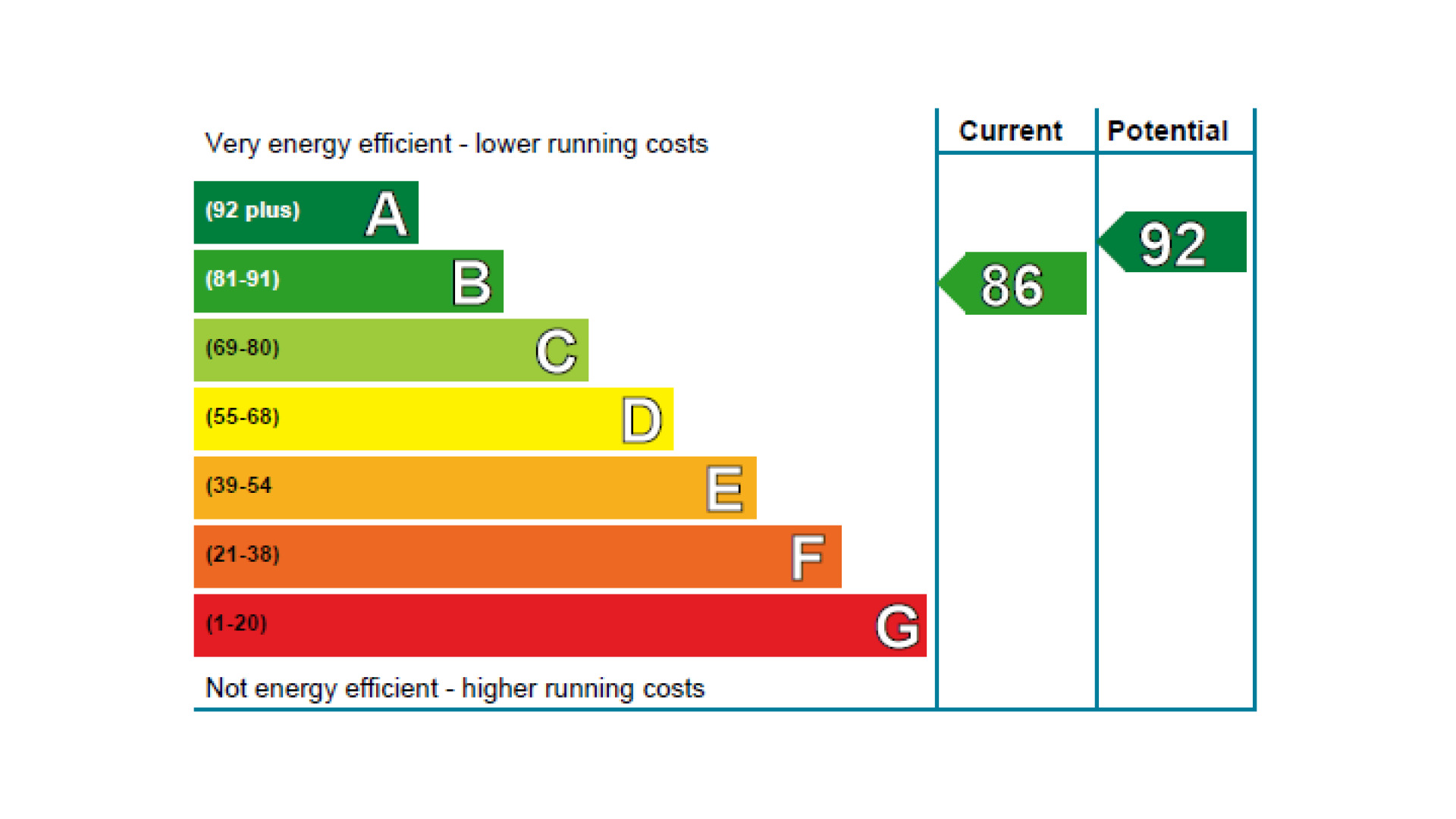#CAVENDISHEXPERTS! The logical choice for Lettings, Sales and Property Management in Nottingham | Cavendish Residential | One Fletcher Gate NG1 1QS | 0115 941 0656 | www.cavendishproperty.co.uk
🍃 What is an Energy Performance Certificate?
🔸 An Energy Performance Certificate (EPC) is an important document that shows how energy efficient a home is by giving it a rating
🔸 An EPC also contains tons of other useful information, like how much energy the home uses and what this is likely to cost
🔸 It’s even got suggestions on how to boost the property’s energy efficiency and the amount of money you could save
🍃 Is an Energy Performance Certificate a legal requirement?
🔸 Yes, it is a legal requirement to have a valid EPC if you’re selling or renting out your home. You also need an EPC if you’re building a new property
🔸 An EPC gives buyers and tenants a clear understanding of how energy efficient the property is and how much they can expect to spend on energy bills
🔸 This has been the law since 2008
🔸 If your property does not have an EPC or it has expired, you’ll need to order one before you market your home. You must “use all reasonable efforts” to obtain the EPC within seven days. A further 21 days is allowed if this is not possible, according to government guidance.
If you don’t have a valid EPC in place, you could face a hefty fine 🚫
🍃 What are the EPC ratings?
🔸 EPCs have a rating system to show how energy efficient your home is currently - and what it could be if you make improvements
🔸 A is the best rating. It gives your home top marks for energy efficiency. And G is the lowest rating. It means your home is far from energy efficient
🔸 The ratings are illustrated in a colour coded bar chart, which makes it easy to see at a glance. A is dark green, while G is bright red
🔸 Your home’s energy performance is also scored, from 0 to 100
🔸 The higher the rating and score, the more energy efficient your home is, and the lower the energy costs are likely to be
🔸 Here’s a closer look at how a property’s energy efficiency is graded, see example below:

🍃 When do you not need an EPC?
🔸There are some scenarios when you do not need an EPC, such as: temporary buildings that will be occupied for less than two years, stand-alone buildings with a ‘useful’ floorspace of 50 square metres or less, industrial buildings, workshops, and agricultural buildings that don’t require a lot of energy, some buildings that are set to be knocked down, holiday homes that are rented for less than four months every year, or that are let under a licence to occupy, homes that are occupied less than four months every year, listed buildings and places of worship.
🍃 How to get an Energy Performance Certificate?
🔸 To get an EPC, you need to arrange for an assessor to visit your home and carry out an assessment
🔸 All EPCs must be carried out by someone who’s accredited (a Google search will be provide you a list of assessors in your area)
🔸 The assessor will then create an EPC and give you a digital copy of it
🍃 What does an EPC assessment involve?
🔸The assessor will have a good look at the interior and exterior of your home. They'll evaluate how much energy your home uses and how much carbon dioxide it produces
🔸The assessment will take into account things, such as: roof, walls and insulation, dimensions and age, windows, heating system, lighting, fireplaces, renewable energy solutions and more.
🍃 How can you improve your home’s EPC rating?
🔸 There are many ways to improve an EPC rating. These can range from simple changes, to more comprehensive
🔸Here are some common measures to boost energy efficiency:
install LED lights. fill draughty gaps, for example, between the front door and the floor, swap single glazed windows for double or triple glazed versions, add insulation to walls, pipes and the roof, invest in a modern, efficient boiler, install renewable energy solutions, such as solar panels, embrace smart technology
🍃 How long does an EPC last?
🔸 An EPC is valid for 10 years, even if the property has new owners or there’s a change of Tenancy
🔸It can be worth getting a new EPC before the 10 years is up, particularly if you’ve carried out work to improve the energy efficiency of your home
🍃 What are the EPC rules for rental properties?
🔸 At the moment in England and Wales, rental homes must have an EPC rating of E or above. As a landlord, you could be fined £5,000 if your property doesn’t meet the required standard.
🔸 But new rules in the pipeline could require rental homes to have an EPC rating of C or above by 2030. They’re part of the government’s net zero drive. Reports suggest landlords could face potential fines of up to £30,000 if they fail to comply.
🔸 Currently, 48% of private rented homes in England meet the proposed new threshold, according to the government.
For more Frequently Asked Questions about EPCs, visit Zoopla's article in full
here 📩
For more information about how to proceed with your Rental or Sale property in respect to your current EPC Rating, contact Gary at our offices (gary.pringle@cavendishproperty.co.uk) - alternatively, complete the form opposite ➡️)
📸 Emma, Rosie, Lisa and Gary at Cavendish Residential 📸
☎📧🗨
🌟 Instant online valuation (immediate response, 60-70% accurate)... Click
here 🌟
🌟 Remote consultant valuation (24-hour response, 80-90% accurate)... Click
here 🌟
🌟 Face-to-face visit (time to suit you, 100% accurate)... Email expert valuer lisa.dahl-parsisson@cavendishproperty.co.uk to get started 🌟
For our Daily Property News | Like, Comment and Share | Click
here#CAVENDISHEXPERTS! The logical choice for Lettings, Sales and Property Management in Nottingham | Cavendish Residential | One Fletcher Gate NG1 1QS | 0115 941 0656 |
www.cavendishproperty.co.uk
For properties for sale in Nottingham from Cavendish Residential click
hereFor properties for rent in Nottingham from Cavendish Residential click
here
Latest from the BEST ESTATE AGENT in Nottingham 🏆
Latest from the BEST LETTING AGENT in Nottingham 🏆








